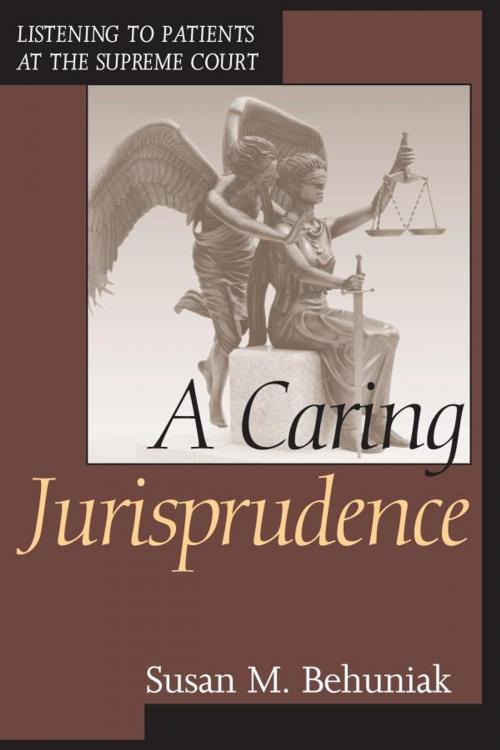A Caring Jurisprudence
Listening to Patients at the Supreme Court
Nonfiction, Social & Cultural Studies, Current Events, Political Science, Government, Local Government| Author: | Susan M. Behuniak | ISBN: | 9780742572560 |
| Publisher: | Rowman & Littlefield Publishers | Publication: | August 31, 1999 |
| Imprint: | Rowman & Littlefield Publishers | Language: | English |
| Author: | Susan M. Behuniak |
| ISBN: | 9780742572560 |
| Publisher: | Rowman & Littlefield Publishers |
| Publication: | August 31, 1999 |
| Imprint: | Rowman & Littlefield Publishers |
| Language: | English |
In deciding the abortion and physician assisted suicide cases, a majority of the Justices of the United States Supreme Court drew on medical knowledge to inform their opinions while dismissing the distinctively different knowledge offered by patients. Following the legal norms derived from the ethic of justice, the CourtOs deference toward the Ouniversal,O Oimpartial,O and OreasonedO knowledge of the medical profession and its disregard of the Oparticular,O Oinvolved,O and OemotionalO knowledge of patients seemed inevitable as well as justified. But was it? This book argues that it is both possible and proper to develop a jurisprudence capable of incorporating the knowledge of patients. Drawing on feminist scholarship, this book proposes a model for a Ocaring jurisprudenceO that integrates the ethic of justice and the ethic of care to ensure that patientsO knowledge is included in judicial decision making.
In deciding the abortion and physician assisted suicide cases, a majority of the Justices of the United States Supreme Court drew on medical knowledge to inform their opinions while dismissing the distinctively different knowledge offered by patients. Following the legal norms derived from the ethic of justice, the CourtOs deference toward the Ouniversal,O Oimpartial,O and OreasonedO knowledge of the medical profession and its disregard of the Oparticular,O Oinvolved,O and OemotionalO knowledge of patients seemed inevitable as well as justified. But was it? This book argues that it is both possible and proper to develop a jurisprudence capable of incorporating the knowledge of patients. Drawing on feminist scholarship, this book proposes a model for a Ocaring jurisprudenceO that integrates the ethic of justice and the ethic of care to ensure that patientsO knowledge is included in judicial decision making.















